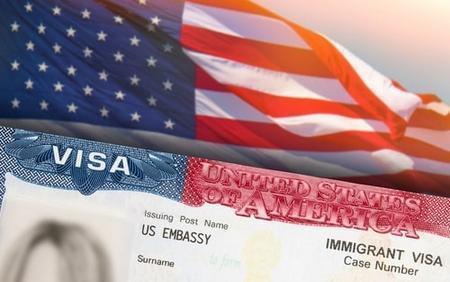What Is the Difference Between IR Visas and F Visas for Family Members?
 One of the most common avenues for immigration to the United States is through sponsorship by a family member. A person who is a U.S. citizen or a permanent resident with a valid Green Card may be able to sponsor people in other countries for family-based visas. However, it is important for families to understand the different types of visas that may be available, the procedures they will need to follow when applying for these visas, and the legal issues that may potentially affect their ability to live together in the United States.
One of the most common avenues for immigration to the United States is through sponsorship by a family member. A person who is a U.S. citizen or a permanent resident with a valid Green Card may be able to sponsor people in other countries for family-based visas. However, it is important for families to understand the different types of visas that may be available, the procedures they will need to follow when applying for these visas, and the legal issues that may potentially affect their ability to live together in the United States.
Visa Eligibility Depends on Family Relationships
A person’s ability to provide sponsorship for family-based visas will depend on their own legal status and their relationship to the family member(s) who are looking to immigrate to the U.S. Generally, U.S. citizens will have an easier time sponsoring family members, and they will often be able to bring immediate family members to the country without a significant waiting period. In cases where Green Card holders wish to sponsor immediate family members for immigration or when citizens wish to sponsor more distant relatives, waiting periods may apply, and a limited number of visas are available.
Immediate Relative (IR) visas are available for close family members of U.S. citizens. A citizen may provide sponsorship for their spouse through an IR-1 visa, or they may provide sponsorship for their children through an IR-2 visa, as long as the children are under the age of 21 and are not married. IR-5 visas may also be available for parents of a U.S. citizen, as long as the citizen is at least 21 years old. IR visas are usually immediately available with no waiting period, and there is no limit on the number of IR visas that can be issued.
Lawful permanent residents may sponsor immediate family members for Family Preference (F) visas, and these visas may also be available for family members of U.S. citizens who are not immediate relatives. These visas are limited to a certain number each year, and waiting periods will usually apply. F visas are issued in the following order of preference:
- First preference - F-1 visas may be available for children of U.S. citizens, as long as a child is over the age of 21 and is not married.
- Second preference - F-2A visas may be available for spouses and unmarried minor children of Green Card holders. F-2B visas may be available for unmarried adult children of Green Card holders.
- Third preference - F-3 visas may be available for married children of U.S citizens.
- Fourth preference - F-4 visas may be available for siblings of U.S. citizens, as long as the citizen is at least 21 years old.
Contact Our Naperville Family Immigration Attorneys
When sponsoring family members for immigration, it is important to understand the types of visas that different people will qualify for and the procedures that must be followed when applying for visas and Green Cards. At Mevorah & Giglio Law Offices, we can help family members understand their rights and options, and we will provide guidance and legal representation throughout the immigration process. Contact our Illinois family visa application lawyers today at 630-932-9100 to arrange a free consultation and discuss your options.
 English,
English,
 Spanish,
Spanish,
 Polish,
Polish,
 Urdu
Urdu













 Make a Payment
Make a Payment



